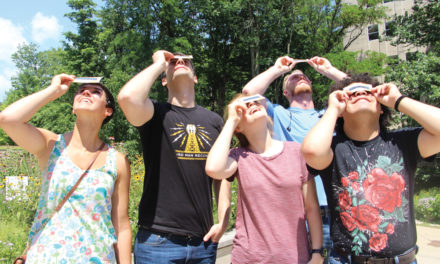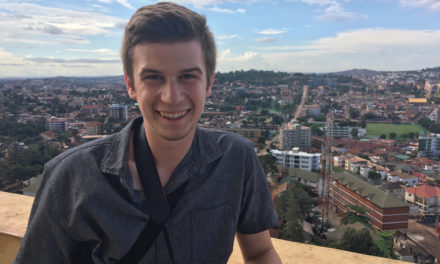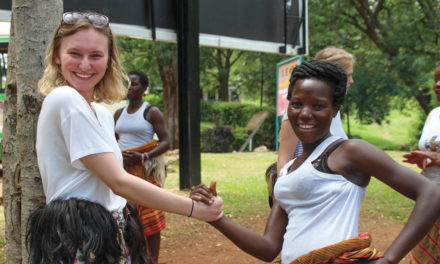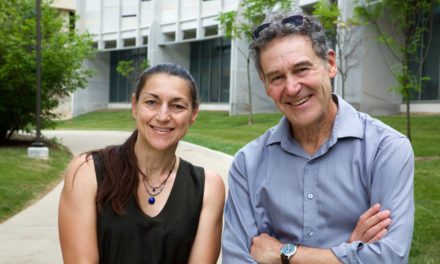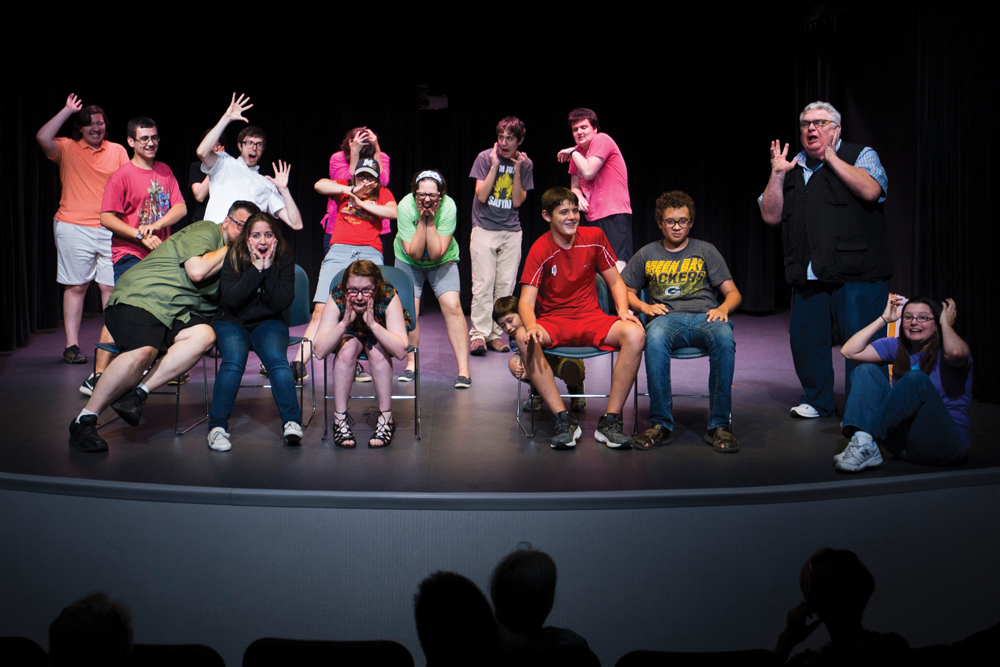
Teachers and teens at Camp Yes And play the game of “The ___ Family Portraits,” where they use an audience suggestion (e.g., “Fear”) to inform their depiction of a family gathering for a reunion photo.
BY CARMEN SIERING
Most people are familiar with improvisational theater—unscripted live-performance shows in which actors make up the scene on the spot. Improv works because everyone on stage agrees to play along, says Jim Ansaldo, a research scholar at the Center on Education and Lifelong Learning at Indiana University. “If improv has one rule, it’s the rule of ‘yes and,’” Ansaldo says.
Those on the autism spectrum sometimes see the world differently than other people. But what if we all learned to improvise a bit and say, “yes and?”
“What if we could do that in real life—accept that some people have a different reality? And what if we could just accept that reality and add to it?” Ansaldo asks. “Sometimes what they are doing may not seem connected, but if we just go with it, we’ll find that connection.”
In 2015, Ansaldo and Lacy Alana, a licensed clinical social worker, co-founded Camp Yes And, a five-day summer improv day camp for verbal teens ages 13 to 18 on the autism spectrum. 2018 will be their fourth year serving as the camp’s co-directors.
Camp Yes And is also a learning opportunity for educators. A wide range of professionals have attended: general educators, special education teachers, theater and drama instructors, arts educators, and speech language pathologists.
Oddly enough, Ansaldo says the topic of autism rarely comes up with the teens during the camp.
“In the morning we work with teachers, and of course we talk about autism and teens on the spectrum,” he says. “But in the afternoon, when the teens come, we’re just there to work on improv. When it might come up is when they are self-referential and they use it to get a laugh. Lots of youth on the spectrum are super bright and have wonderful senses of humor.”
As to the common notion that kids on the spectrum aren’t social? “It’s all in the conditions you create—you’re social or not social depending on the environment you find yourself in,” Ansaldo explains. “So, we create an environment where they can learn those skills.”
Post-camp evaluations show that teens who attend have more confidence, are better able to understand and participate in reciprocal conversations, develop more flexibility in their interests, have more ability to share control and take turns, and develop greater body and emotional awareness.
Ansaldo sees improv as a great, low-cost tool for educators, combining social-emotional learning with academic learning. “I would like to see this camp as a launching point for educators who want to try a new approach,” he says.
Camps will be held June 11-15 and June 18-22 in Indianapolis at the Lilly Auditorium in the IUPUI University Library and July 9-13 in Bloomington in Whittenberger Auditorium at the Indiana Memorial Union. For more information, visit yesand.indiana.edu.
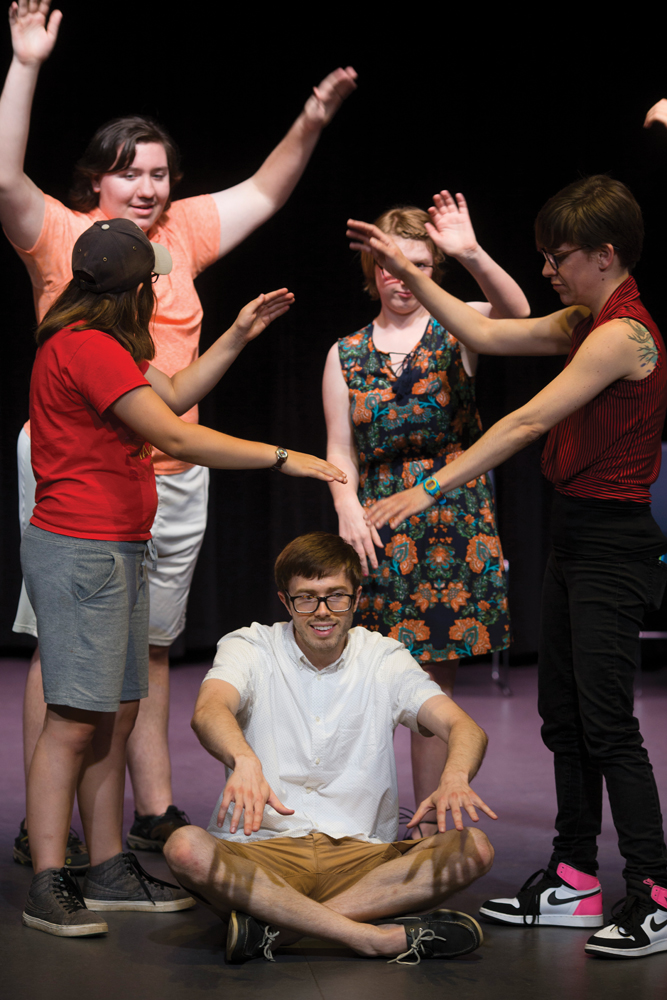
(seated) Jared Ross; (l-r) Maia Zizak, Thomas Nicholson, Eliana Miller, and camp co-director Lacy Alana.


